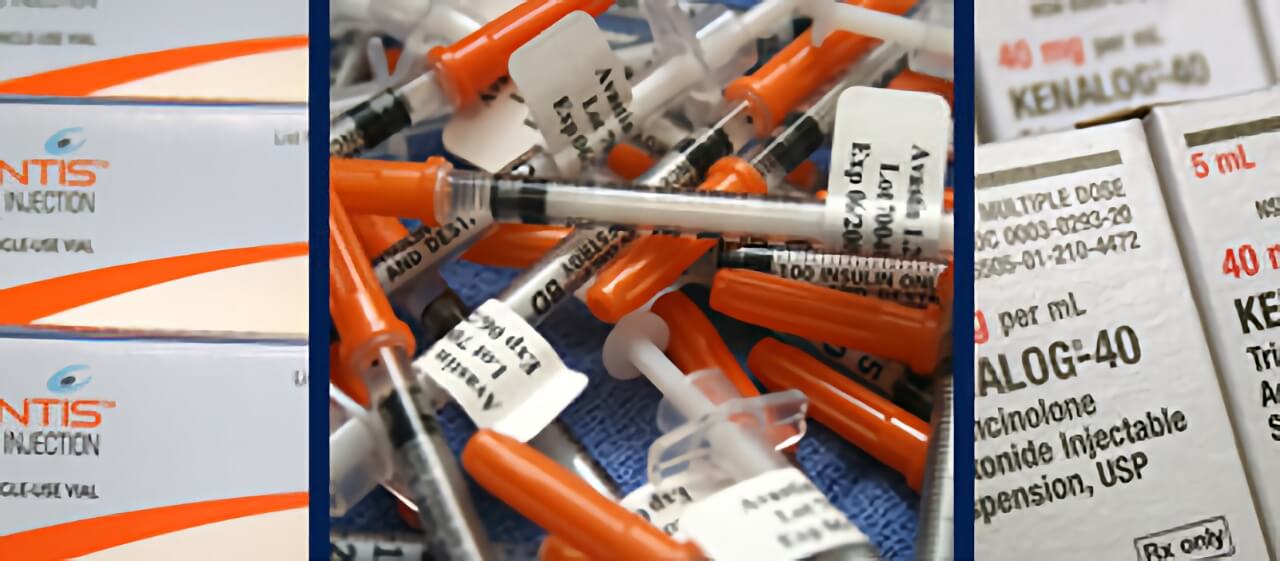Injections
Many of the conditions we commonly see in our practice require treatment with medications injected either around the eye or into the eye. These treatments are performed as in-office procedures. Some of the more commonly injected medicines are steroids (triamcinolone or dexamethasone) and anti-vascular endothelial growth factor agents (Avastin, Lucentis, Eylea, or Beovu). These treatments are often aimed at arresting visual loss from swelling or bleeding in the center of the retina, called the macula1 (Ou et al. 2017). These treatments often take effect over weeks and months and typically need to be repeated for greatest benefit. Your doctor will monitor your condition periodically to determine if your treatment is effective and how often it needs to be repeated.

If you need an injection of medication, your eye will be anesthetized to minimize the temporary discomfort of the procedure. The eye will also be carefully cleaned with an antiseptic to reduce the risk of infection. After the medication is injected with a very small needle, you may notice “cobwebs,” “strings,” or “floaters” in your vision for a few days or weeks. This is the medicine inside your eye. Some patients have mild eye pain and a scratchy sensation for day or so after the injection. The lower portion of the white part of the eye may also appear red – this is normal and not a threat to the vision or the treatment’s success.
If you have excessive, increasing pain or loss of vision after the injection, you must call us. Having mild pain on the day of injection is common and should resolve by the next day. When you call, please inform the front desk or technician staff that you have had an eye injection, and describe your symptoms. If you call after hours, please inform the doctor on call of your symptoms and she or he will respond to you.
Injection Treatment Videos
Retina BRVO Medication Injections
Retina Diabetic Injection Macular Edema
Retina VMA Injections
Retina Wet AMD Medication Injection
References
- Ou WC, Brown DM, Payne JF, Wykoff CC. Relationship Between Visual Acuity and Retinal Thickness During Anti-Vascular Endothelial Growth Factor Therapy for Retinal Diseases. Am J Ophthalmol. 2017 Aug;180:8-17. pubmed.ncbi.nlm.nih.gov/28549848


